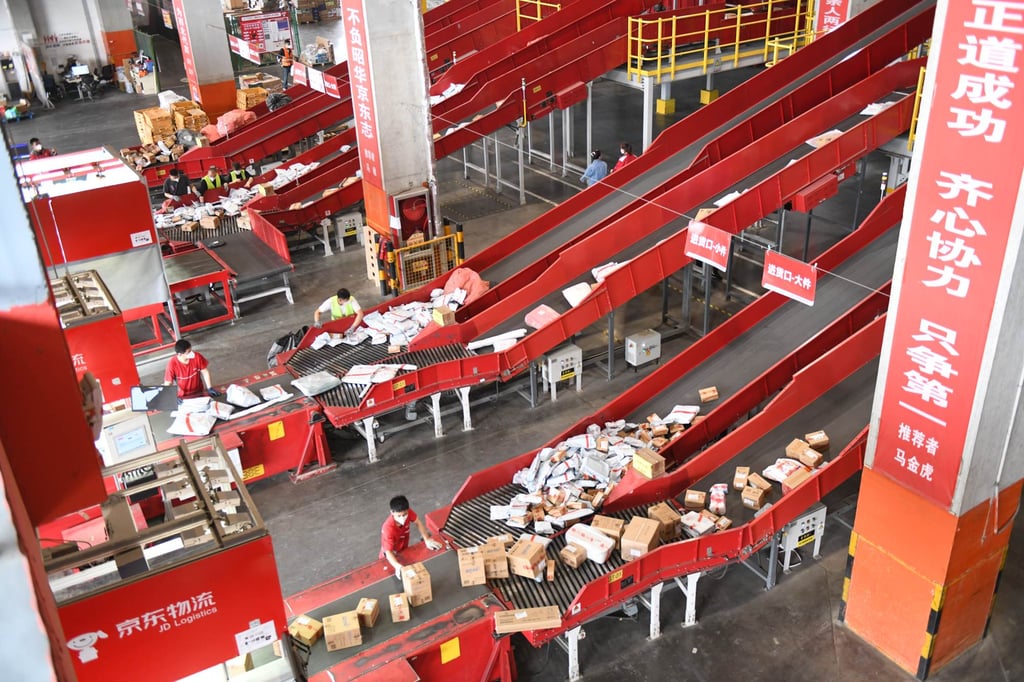[ad_1]
A 28.5 per cent stock price plunge on Monday that wiped US$55 billion off the valuation of PDD Holdings, the owner of shopping apps Temu and Pinduoduo, reflected “shaken investor confidence” in its future after top management dumbfounded investors by playing down profit prospects, analysts said.
Nasdaq-listed PDD, a rival of Alibaba Group Holding in global e-commerce, suffered its biggest intraday stock price fall since its listing in 2015, lowering the net worth of low profile founder Colin Huang – who was briefly China’s richest man – by an estimated US$14 billion. Alibaba owns the South China Morning Post.
The rout came after company executives said they would sacrifice short-term profits for long-term growth and forgo share buy-backs or dividends in coming years, after PDD’s second-quarter results just missed analysts’ expectations.

Investors were spooked after management gave weak guidance for future growth, and conveyed their views on stock repurchase programmes and dividend sharing amid heightened competition and market uncertainties, according to Li Chengdong, founder and chief analyst at e-commerce consultancy Dolphin.
PDD Holdings chairman and co-chief executive Chen Lei said in an earnings statement that the firm was “committed to transitioning towards high-quality development and fostering a sustainable ecosystem”, and would “invest heavily in the platform’s trust and safety, supporting high-quality merchants”.
“We’re prepared to accept short-term sacrifices and potential decline in profitability,” Chen said, in a cautionary tone that Wang Xiaoyan, a senior analyst at 86Research, said would put a damper on investors’ confidence.
UBS analysts wrote in a note to clients that PDD’s outlook was “confusing”. “Investors seem unsure whether PDD sees something that we don’t or they are just being overly conservative amid the uncertain macro [environment],” UBS wrote.
The Chinese e-commerce market is undergoing a shake-up amid a softening economy and weakened consumer spending.
PDD reported a record 97 billion yuan (US$13.6 billion) in the quarter that ended June, up 86 per cent year on year, but lower than the consensus analysts’ forecast of 99.9 billion yuan compiled by Bloomberg.
Pinduoduo’s major competitors Alibaba and JD.com have doubled down on lower-cost goods without compromising on service, logistics and perception of quality, squeezing the budget shopping platform on its advantageous front, said Mark Tanner, managing director of China Skinny, a Shanghai-based market research firm.
Tanner said live-streaming e-commerce platforms such as Douyin, operated by TikTok owner ByteDance, are cannibalising the traditional online shopping sites.
While Pinduoduo, outflanked by competitors, said it is aiming to “vigorously support high-quality merchants while firmly tackling low-quality ones”, some analysts sounded a cautionary tone for the initiative.

Not only would the move require significant investment to alter its systems, workflow and perception among consumers, it would also likely diminish Pinduoduo’s key market advantage, which was its low-cost structure and agility, Tanner added.
“When the platforms have little to differentiate themselves, I would say the allure of Alibaba, JD and Douyin will be stronger,” Tanner said.
Benjamin Cavender, managing director at consultancy China Market Research Group, said the country’s weak economy has pushed major e-commerce players to engage in aggressive battles against one another.
“The reality is that even if [Pinduoduo] … clamped down on product quality issues, they are still operating in a very challenging economic environment that is likely to be even more competitive as major players also look at mitigating the effects of low consumer confidence,” Cavender said.
[ad_2]
Source link





